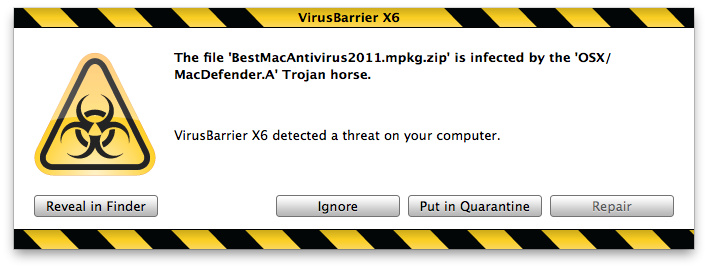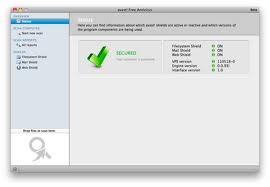

- VIRUSBARRIER EXPRESS REVIEWS MAC OS X
- VIRUSBARRIER EXPRESS REVIEWS MAC OS
- VIRUSBARRIER EXPRESS REVIEWS INSTALL
- VIRUSBARRIER EXPRESS REVIEWS CODE
- VIRUSBARRIER EXPRESS REVIEWS DOWNLOAD
It does this via a set of command and control servers that were initially inoperable when Intego discovered Flashback in late September 2011. If a network-related program starts crashing regularly, that may be a clue that your Mac has been infected.įlashback needs both a way to transmit these stolen login credentials back to the mothership and a method of updating its code.
VIRUSBARRIER EXPRESS REVIEWS CODE
(Tip #2: Don’t use the same password for all Web sites!)īecause Flashback’s code can interfere with its host programs, it tends to cause crashes. Presumably, the bad guys behind Flashback are looking for user names and passwords that they can exploit immediately - such as for a bank Web site - and those that may be reused across different sites. It monitors network traffic and looks for connections to a number of domains - sites such as Google, Yahoo, CNN, PayPal, numerous banks, and many others. Infection Effects - Flashback’s goal is to capture user names and passwords, which it accomplishes by inserting its code into Web browsers like Safari and Firefox and other network applications like Skype.
VIRUSBARRIER EXPRESS REVIEWS INSTALL
The most recentįlashback.G variant won’t even attempt to install if Intego’s VirusBarrier X6 or certain other security programs are present, presumably since there’s no point in bothering with Macs that are already protected.
VIRUSBARRIER EXPRESS REVIEWS MAC OS
They do this because many security researchers test malware in virtual machines, rather than risk infection of full installations of Mac OS X, since it’s easier to delete a virtual machine and start over with a clean copy.
VIRUSBARRIER EXPRESS REVIEWS MAC OS X
Some variants check to see if the user is running Mac OS X in VMware Fusion and won’t execute if so.

It’s clear that Flashback is in active development, not just from the arrival of this new attack vector, but because it intentionally tries to avoid detection. if you were to click the Continue button, you’d be giving the applet permission to run and your Mac would be infected.
VIRUSBARRIER EXPRESS REVIEWS DOWNLOAD
Such attacks.) Failing that, Flashback next attempts to download and run a Java applet that displays a self-signed certificate purporting to be from Apple Inc.

(Luckily, Macs running 10.7 Lion don’t have Java installed by default, and those who have installed all available Java updates in either Lion or 10.6 Snow Leopard are immune from First, it attempts to install code on your Mac silently through one of two known Java vulnerabilities. The new Flashback.G instead employs a two-pronged approach that’s completely different from the fake Flash Player installer, though the malicious code that’s installed is essentially the same (hence the continued use of the Flashback name). If “Open ‘safe’ files after downloading” is selected in Safari’s General preferences, the bogus installer would be launched automatically, and your Mac would be infected. Infection Vectors - In Flashback’s original approach (variants Flashback.A, Flashback.B, and Flashback.C), a malicious or hacked Web site would display what looks like a Flash error, and if you were to click it, an installer package pretending to be Flash Player would be downloaded. (Thanks to TidBITS sponsor Intego for many of the details in this article, which Intego was the first to publish in its Mac Security Blog.) 1654: Urgent OS security updates, upgrading to macOS 13 Ventura, using smart speakers while temporarily blindĪs TidBITS Security Editor Rich Mogull wrote in “ Gatekeeper Slams the Door on Mac Malware Epidemics” (16 February 2012), the most significant security hole on the Mac stems from users being tricked into installing something malicious, and once OS X 10.8 Mountain Lion sees widespread adoption later this year, Mac users will have additional protection from at least malicious downloaded applications.īut even Gatekeeper won’t protect from malware that worms its way into Macs in other ways, such as Flashback, malware that may have started out life masquerading as a Flash Player installer but can now infect Macs through sneakier means.#1655: 33 years of TidBITS, Twitter train wreck, tvOS 16.4.1, Apple Card Savings, Steve Jobs ebook.



 0 kommentar(er)
0 kommentar(er)
